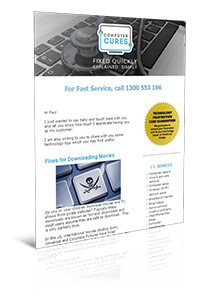Home / Handy Tips /
![]()
Have you ever discussed a topic with a friend and then seen a related advertisement on your phone shortly after? This may not be a coincidence.
Internet tracking is a common practice that affects anyone with a device that connects to the internet. Although this may seem unsettling, tracking data is actually used to personalize and improve the user experience on certain websites and other online platforms.
While some may fear that their information is being stolen, it is rare for internet programming experts to abuse this practice. However, internet tracking can become a bigger concern when it is not properly regulated. In any case, the very realization that you are being watched causes discomfort. Here’s how you can maintain data privacy and protect yourself from industrial espionage by companies.
Tips to stop online tracking
#1 Use a VPN
Need to use public WiFi when you’re out and about? Be careful! This is a dangerous undertaking because your internet activity can be tracked, as well as stolen data. Keep your data private by using this tool. You might think “Can you be tracked with a VPN”, but you don’t need to worry because the risk of tracking is reduced to a minimum. A VPN creates an encrypted network between VPN servers and your device, ensuring that your information stays safe. After installing VPN, an encrypted network appears, so even if data is stolen, it will be extremely difficult to decrypt it. If 256-bit encryption technology is used, like VeePN, then hacking becomes almost impossible.
#2 Choose safe sites
When browsing the internet, it’s important to prioritize safety. Protecting your information and avoiding online tracking should be top of mind. To limit tracking, use an incognito tab that won’t save cookies to your browser. Also, look for “HTTPS” at the beginning of a site’s URL, as this indicates a safe and secure site. Stay safe while surfing the web.
#3 Activate the “do not track” option
Are you protecting your digital privacy? Enabling “do not track” in your browser settings can help keep your personal information safe. Just remember, this setting is only a request to websites, and not all sites and browsers will honor it. Stay safe online!
#4 Use an anti-tracking browser
Prevent online tracking with ease using the private browser, a powerful anti-tracking browser. Our free privacy browser not only blocks trackers but also ensures your browsing activity remains hidden. Enjoy complete privacy with our built-in private search engine and ad-blocking capabilities.
#5 Use a private search engine
Say goodbye to search bias and online tracking with Private Search, your go-to search engine that puts your privacy first. This anti-tracking technology blocks pesky third-party trackers while ensuring your search history remains safe and secure.
But that’s not all – objective search results won’t be skewed by the likelihood of clicks, so you can trust that you’re getting unbiased results. Plus, tracker insights let you know exactly who’s watching you online, giving you better transparency and control over your digital footprint.
#6 Clear private data
If you share your device or computer with others, safeguard your browsing privacy by clearing your private data after each session. This simple step helps erase your digital traces and ensures the security of your personal information. Take quick action to strengthen your online privacy.
#7 Create profiles on multiple browsers
Do you desire to improve your privacy online? Consider creating separate profiles on different browsers for multiple benefits:
– Reduce web tracking and limit your exposure to online trackers
– Provide an extra layer of protection against hacks and data breaches
– Keep your online activities separate and organized
– Enable easy deletion of information when you no longer need it.
Explore this simple yet effective technique to stay safe and secure while browsing the internet.
#8 Use Tor Browser
TOR, a.k.a. The Onion Router, is cutting-edge, open-source software that keeps your online activities undercover. By opting for TOR, you can access the web anonymously and enjoy total protection against censorship, surveillance, and tracking.
So, if you’re looking for a free and easy-to-use browser that blocks trackers and safeguards your identity, TOR is the way to go. To learn more about TOR’s capabilities and benefits, give “What is the TOR browser? And how it can help protect your identity” a read.
![]()
#9 Don’t allow sites to save cookies
Discover what cookies are and how to keep yourself safe while browsing the internet. Cookies are little bits of information created by websites while you’re surfing the web. When you visit a new site, decline to accept cookies if prompted. Although certain website features may be disabled, it’s critical to prioritize your safety against technical threats.
#10 Switch from mobile apps to a web browser
Did you know that mobile apps access and collect more of your personal data? Unfortunately, this can mean they’re typically less private than browsers. But don’t worry, there are ways to safeguard your digital privacy.
Our top recommendation is to use a browser instead of logging into apps on your phone. You can also download an ad and tracker blocker to improve your browser’s privacy even more.
If you want to take it a step further, try deleting any apps you don’t need or use. Instead, access Facebook and other social platforms on your web browser rather than via the mobile app. It’s a small change that can make a big difference in protecting your personal information.
Conclusion
Privacy and security are two of the most important aspects of surfing the web. Use a private search engine, clear private data, create profiles on multiple browsers, use Tor Browser, don’t allow sites to save cookies, and switch from mobile apps to the web. To help you stay safe online, continue practicing these 10 steps to better protect your digital data.








Under #4 you say ‘Our free privacy browser ‘. What is this and how do I access this.